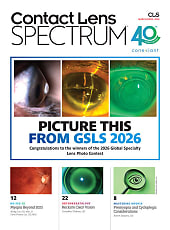A new study published in Contact Lens and Anterior Eye suggests that while scleral lenses do not appear to cause short-term visible changes to the eye’s surface, they may trigger subtle inflammatory responses at the molecular level.
Researchers from Fudan University and collaborating institutions analyzed tear samples from 41 healthy adults who wore either scleral lenses or rigid corneal lenses over a 1-month period. The study measured ocular redness, tear film stability, and protein composition in tears to assess potential effects of each lens type.
No significant differences were observed between groups in visible signs such as conjunctival or ciliary vessel hyperemia, nor in tear film stability. However, proteomic analysis of tear fluid revealed 397 proteins with altered expression in the scleral lens group, including elevated levels of pro-inflammatory molecules like interleukins. Pathway analysis indicated activation of inflammation-related processes.
The researchers concluded that scleral lenses, though well tolerated in the short term, may induce subtle biological changes in the ocular environment not apparent in standard clinical tests. They emphasized the need for further investigation to determine whether these molecular responses have long-term clinical relevance for scleral lens users.
Zhang Z, Zeng L, Le Q, et al. Proteomic analysis of tear fluid: Comparative short-term effects of scleral lenses and rigid corneal lenses wear in ametropic healthy adults. Cont Lens Anterior Eye. 2025 Sep 11:102507. doi: 10.1016/j.clae.2025.102507



